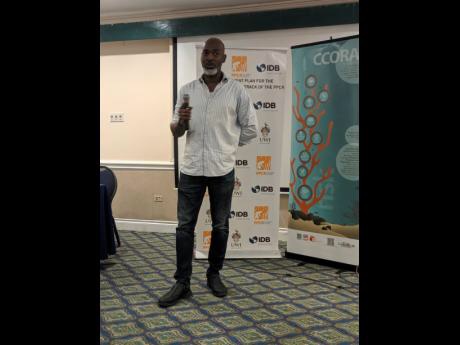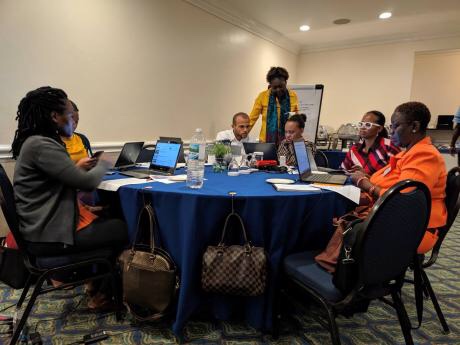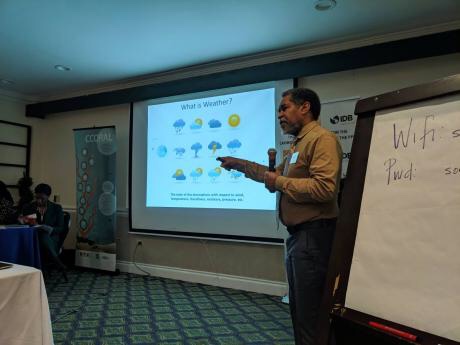



JAMAICA WAS handed another tool to strengthen its climate resilience when key staff from the Planning Institute of Jamaica, the National Water Commission, and the Institute of Jamaica, among others, were trained in the use of the Caribbean Climate Online Risk and Adaptation Tool (CCORAL).
Representatives from the Ministry of Industry, Commerce, Agriculture and Fisheries, the National Environment and Planning Agency, and the Rural Agricultural Development Authority were also participants at the training workshop, held at the Courtleigh Hotel in New Kingston from February 11 to 13.
The workshop was funded by the Investment Plan for the Caribbean Regional Track of the Pilot Programme for Climate Resilience (PPCR).
“Investments in training activities such as these are a very important part of securing the long-term future of Jamaica and the wider Caribbean,” said Ainsley Henry, programme manager for the Caribbean Regional Track of the PPCR.
The training was facilitated by a team from the Caribbean Community Climate Change Centre based in Belize, with technical support from a member of Grenada’s National Climate Change Committee.
Over the three days of training, participants were exposed to a crash course on climate, as well as current climate change implications in the region. They were also given practical planning activities, which enabled them to make use of CCORAL.
CCORAL, which is run entirely online, was developed for government officials to integrate climate resilience into normal Caribbean decision-making processes and activities, according to the Caribbean Community Climate Change Centre.
The training and tool is a part of Phase 2 of the Caribbean Risk Management Project.
The Investment Plan for the Caribbean Regional Track of the Pilot Programme for Climate Resilience is a US$10.9 million, five-year project, executed through the Project Management Unit of The University of the West Indies Mona Office of Research and Innovation. The funding comes from the Climate Investment Funds, with financial oversight provided by the Inter-American Development Bank.
CREDIT: The Gleaner - Jamaica




